OUR PEOPLE
meet our team!
Board of Directors

Linda Rose-Krasnor, MASc, PhD
Chair, Board of Directors, PPA
Linda Rose Krasnor is currently a Professor Emeritus at Brock University, which is located in southern Ontario, Canada. She is a developmental psychologist, with particular research interests in social development and youth engagement. In addition to her teaching and research responsibilities, Linda served as President of the Brock faculty union and was active in the University Senate, serving terms as Chair of the Senate’s Governance and the Planning, Priorities, and Budget Advisory committees. Since becoming involved in the Pheo Para Alliance, Linda has been part of the peer support initiative, helping to develop the peer support training module and facilitating the monthly peer support calls.
Although asymptomatic, in 2009 Linda was assessed for pheocromocytoma/paragangliomas following the diagnosis of multiple paraganglomia in three close family members. Linda’s testing indicated bilateral neck paragangliomas, which subsequently were determined to be glomus vagale tumors. One was been surgically removed in 2016, with accompanying vagal nerve damage resulting in a paralyzed vocal cord and Horner’s Syndrome. With further surgery and extended speech therapy, Linda’s voice has recovered and she is being monitored yearly for growth in the remaining tumor. Linda and her family have the SDHD mutation.
In her role as a Board member, Linda is looking forward to helping advance the important and much needed educational, support, and empowerment functions of PPA and to strengthen its critical role in promoting research into prevention, diagnosis, and treatment. She is specifically interested in increasing our understanding of the socio-emotional implications of living with pheo/para, especially for children and youth.
Linda received her B.A. in psychology from Boston University and her M.A.Sc. and Ph.D. in developmental psychology from the University of Waterloo. In addition to her work with PPA, Linda volunteers as a leader of adult and children’s bereavement groups for Hospice Niagara.
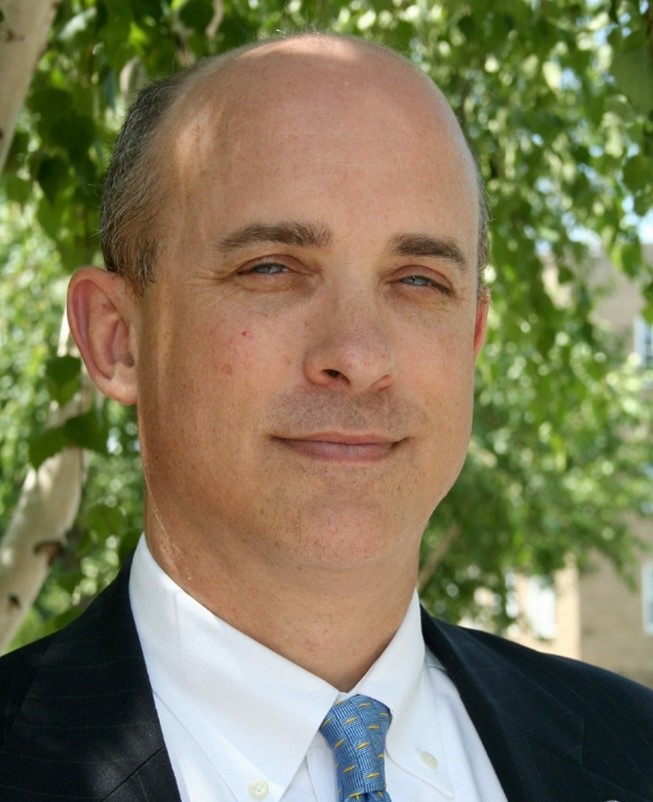
Michael L. Campbell
Vice-Chair
Michael L. Campbell is the retired Interim Executive Director of the Mark Twain House & Museum in Hartford, CT. Prior to that position, he served as Chief Operating Officer for 6 years. Mark Twain wrote most of his well-known works from this house and spent more years there than he did in any other place. Michael helped keep the legacy of Mark Twain and his family alive by serving 70 employees. He has served the nonprofit community in the Central Connecticut area for over 40 years. He was the Executive Director of SummerWind Performing Arts Center in Windsor, CT and was Chief of Staff for the Girl Scouts of Connecticut. He also served as National Development Director for the US Naval Sea Cadet Corps in Arlington, VA, responsible for all advancement efforts nationwide for this youth development organization. One of Michael’s favorite roles was Executive Director of the Hartford Children’s Theatre. His duties there included development, finance, operations and the management of all programs that led the organization to receive the New England Theatre Conference’s award for best youth theatre production in New England. Michael was a fixture at the Producing Guild, a premier non-equity theatre for over 15 years as Business Manager, Production Manager, Actor, Singer and Production Assistant. He has served on many local, national, and international boards with experience in all areas of nonprofit governance and management.
Michael was diagnosed with a pheochromocytoma in the summer of 2021 and spent over a month in the hospital at the University of Connecticut Health Center. His surgery was successful, and he vowed to give back to the community. Michael has traveled to almost 60 countries, is a former mountaineer and has served in uniform as a Lieutenant Commander acting as a mentor for the US Naval Sea Cadet Corps. With his wife Rie and their four cats Shiraz, Zambezi, Colaba, and Marais he lives in Canton, CT.
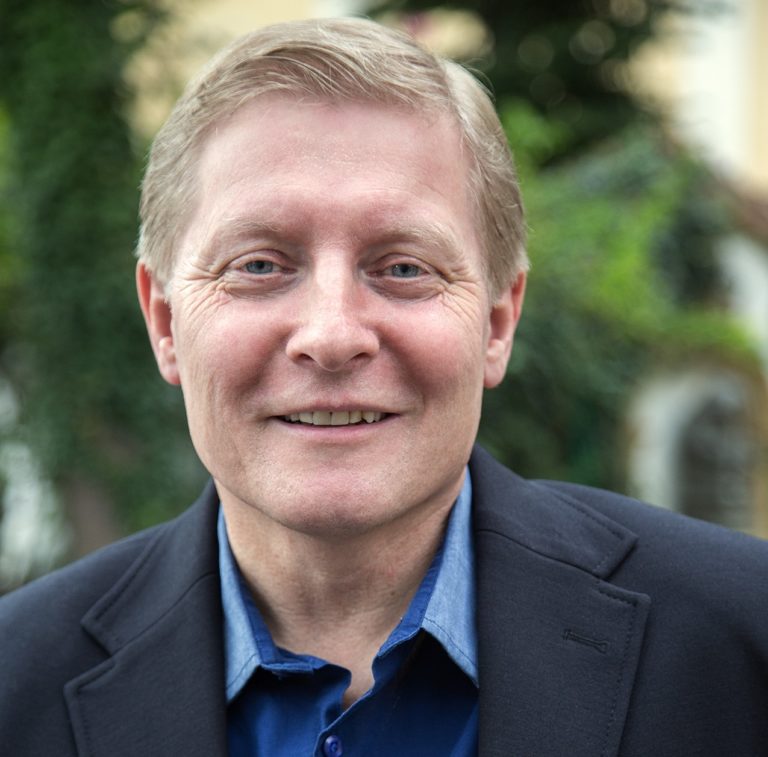
Karel Pacak, MD, PhD, DSc
Chair, Medical Advisory Board & Member, Board of Directors
Dr. Pacak is a board-certified endocrinologist and an internationally recognized expert in the diagnosis and treatment of neuroendocrine tumors, especially pheochromocytoma and paraganglioma. He graduated summa cum laude from Charles University, Prague, Czech Republic in 1984. In 1990, he began his postdoctoral fellowship at NINDS. In 1995, Dr. Pacak began his residency in internal medicine at the Washington Hospital Center under Dr. L. Wartofsky, followed by a fellowship in endocrinology, diabetes, and metabolism at NIH. In 1998, he established a new Program for Neuroendocrine Tumors focusing on pheochromocytoma and paraganglioma at NICHD. He received his Ph.D. in 1993 and his D.Sc. in 1998 in the field of neuroendocrinology from Charles University. In 2006, he was awarded a lifetime professorship in Internal Medicine at Charles University. Currently, Dr. Pacak serves as the Medical Director for the Center for Adrenal Endocrine Tumors at Akeso Hospital in Prague, Czech Republic.
Dr. Pacak established the International Symposia on Pheochromocytoma. He also helped co-found a new Asian Alliance for the Study of Neuroendocrine Tumors in 2010. He is a recipient of numerous awards including the Peter Heimann Memorial Award at Yale University, International Association of Endocrine Surgeons; NIH Director’s Mentor Award, Award for Cure from Pheo Para Alliance, NICHD Director’s Award of Merit, Pincus Taft Memorial Lecture the Highest Award from Endocrine Society of Australia, and Jessenius Gold Medal from Slovak Academy of Sciences. Dr. Pacak is the author of more than 305 scientific peer-reviewed articles, 98 book chapters, and 5 books.
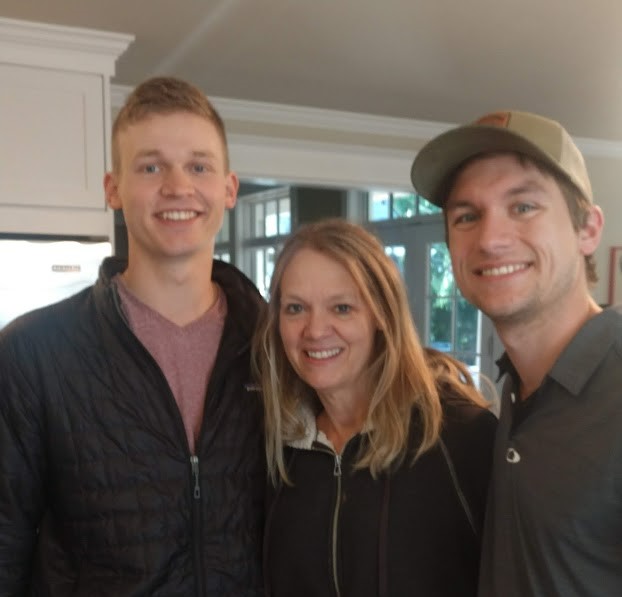
Lisa Anderson
Treasurer
Lisa Anderson is a “mother on a mission” determined to help others avoid a long and excruciating journey toward a pheochromocytoma or paraganglioma diagnosis. After seeking answers for nearly 5 years that would explain her college-aged son’s debilitating symptoms (headaches, blood pressure swings, irregular heartrate, sweating, nausea, vomiting and extreme panic/anxiety), a suspicion of a pheochromocytoma tumor was finally discovered through incidental testing by a gastroenterologist who ordered an ultrasound to investigate a potential gallbladder issue. The time from diagnosis to tumor removal surgery became a whirlwind of searching PubMed articles about pheo, coordinating with the surgical team, cross-checking every well-intended medication, and caring for her precariously sick son who required 24-hour hospital care until the surgery date.
After learning a blood and/or urine test to check metanephrine levels when the symptoms first appeared could have signaled this adrenal tumor, Lisa has made it her mission to look for ways to raise awareness about this disease with health care providers. She has found a place with Pheo Para Alliance (PPA) to channel her energies. Throughout her more than 30-year career at the Fred Hutchingson Cancer Research Center in Seattle, WA, Lisa has had the opportunity to cultivate relationships with physicians, scientists, residents, fellows, administrators, and volunteers with whom she worked collaboratively to support cancer research with special emphasis on patient needs. She hopes to use her experience in health care administration and knowledge of health care systems to access an array of medical professionals and organizations to remind them to “think about pheochromocytoma and paraganglioma” so that others will not have to endure an unnecessary and potentially dangerous delay in diagnosis.
Lisa holds a BA in Spanish from the University of Washington, and a Masters in Teaching from Western Governor’s University. When she’s not happily volunteering with the PPA, she loves substitute teaching at the local elementary school, road trips, and playing golf with her husband and two sons.

Lacey Koelling
Secretary
My name is Lacey Koelling and my journey with PPA began in 2018 when I was diagnosed with bilateral carotid body tumors. At the time, I was introduced to the Paratroopers by my genetic counselor. From 2018-2023, I believed my lifetime of monitoring my paras was all this diagnosis would bring me. In 2023 when I received the news I was metastatic, the PPA became a refugee of information and support for me. Over the past year and a half, I have increased my involvement with other patients and researched ways to contribute to the education and research of pheo para through the PPA. This has led me to seek a greater, more involved role in supporting the community which led me to become a member of the board. I am interested in being an advocate for patients and research for treatment options.
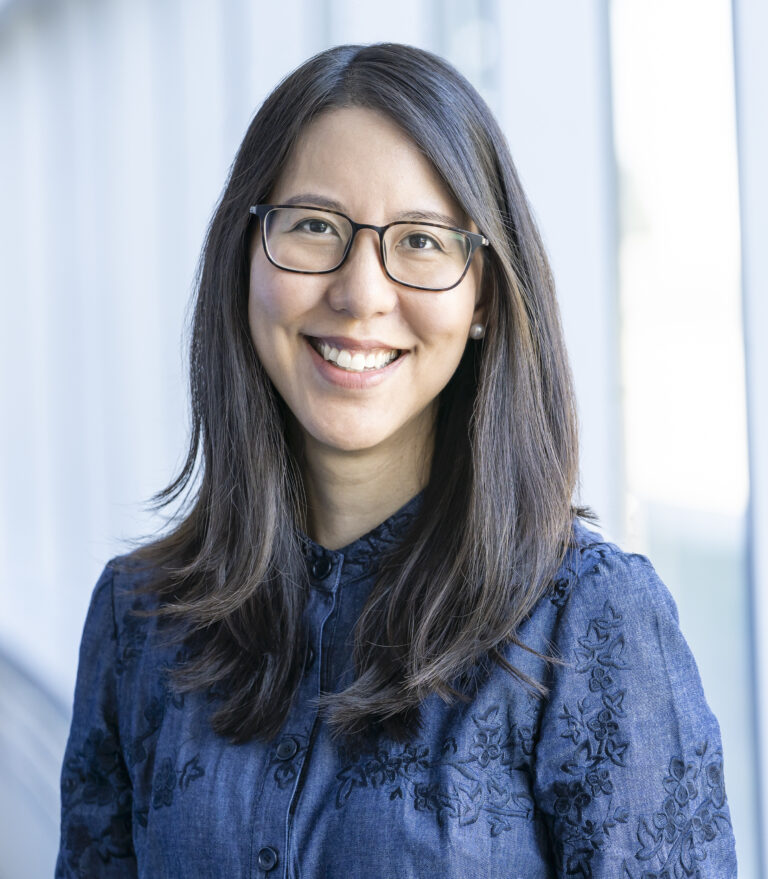
Bessie Lewis
Member
Bessie Yang Lewis’ pheo para journey began when her husband Scott was diagnosed with metastatic paraganglioma in March 2021. She was his caregiver over the next 14 months as he underwent numerous treatments including orthopedic surgeries, radiation, chemotherapy, and nuclear medicine. Scott passed away in May 2022 at the age of 45. Based on her experiences, Bessie has a strong interest in advocating for patients and caregivers fighting rare diseases. She writes about her grief journey at https://scottandbessie.blogspot.com/.
Bessie holds a Master’s degree in Computer Science and a Bachelor’s degree in Computer Engineering, both from the Georgia Institute of Technology. She is interested in how artificial intelligence (AI) can be used to improve diagnostics and treatments for rare diseases.

Phil Cadorette
Member
Phil Cadorette joined Pheo Para Alliance in February 2023. Phil currently works at Jones Lang LaSalle in New York City where he is focused on capital markets advisory for commercial real estate transactions. Previously he held roles in healthcare investment banking at Nomura Securities and in private equity at Blackstone. During his tenure at Nomura, he was involved in capital raising and mergers & acquisitions for companies across the Life Sciences and Healthcare Services industry. His experience in investment banking working with biotech companies in the orphan and rare disease space has helped him better understand and appreciate both the level of awareness and exorbitant funding that is required for researching these types of diseases.
Phil graduated from Babson College in 2016 with a Bachelor’s degree in Business Management and Finance concentration. He lives in New York City and enjoys golf and tennis.
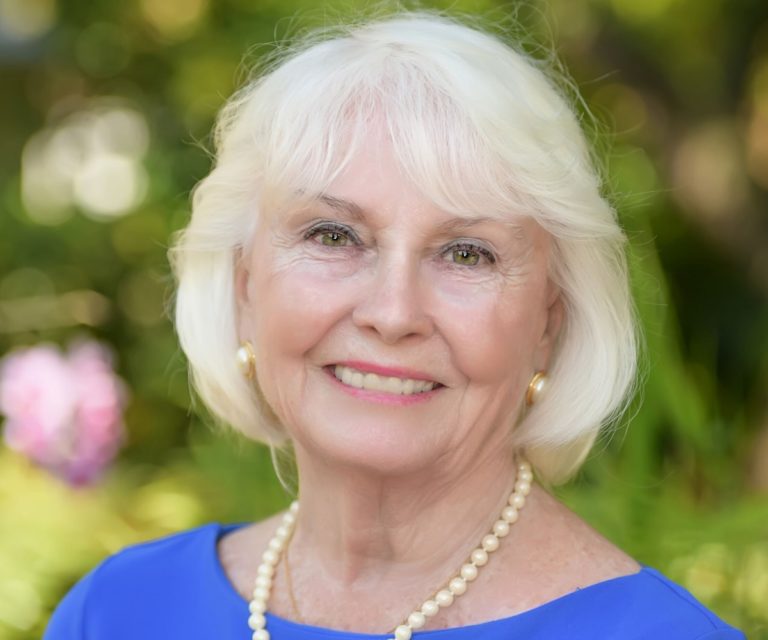
Betsy Herold
Member
As Betsy likes to say, she spent twenty years raising children and then thirty years raising money and volunteering for non-profit organizations. A childhood friend of Betsy’s has the disease, and her commitment to finding new treatments and a cure is palpable. Betsy’s expertise in fundraising and the nonprofit landscape have guided the Alliance throughout its path to build a stronger organization. Her philanthropic endeavors extend well beyond PPA and include serving as the President of Molly’s House which support patients receiving medical treatment by providing temporary, affordable accommodations to them and their families.
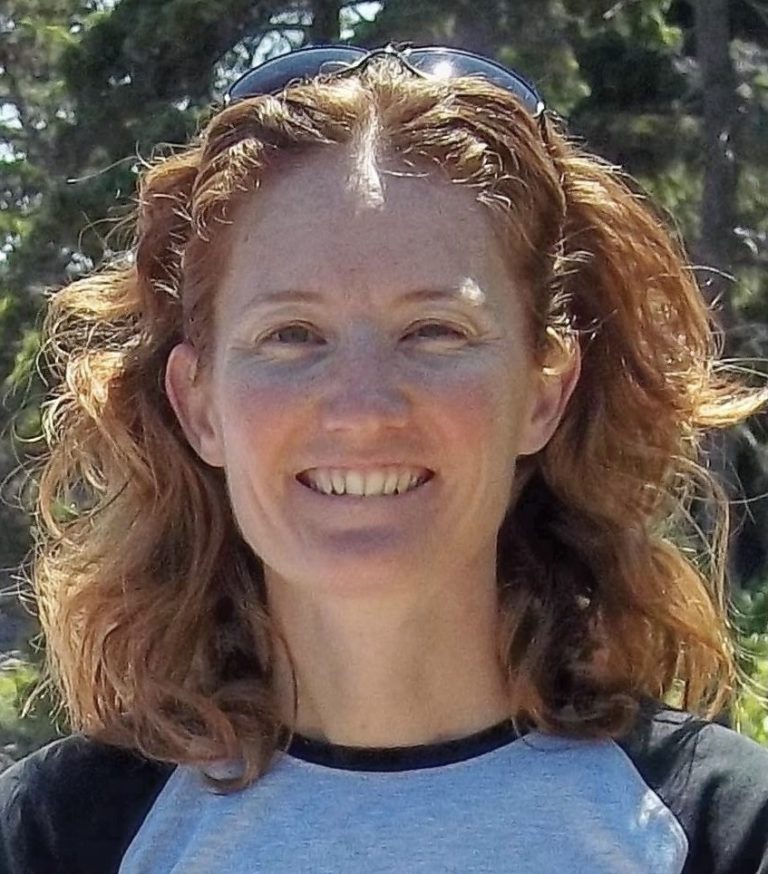
Shonna Snyder, PhD
Member
Shonna was diagnosed with a bladder paraganglioma in 2019 after many years of extreme symptoms in which doctors dismissed as such things as stress, fatigue, panic attacks or POTS. Given her research and health education background, she knew that these diagnoses were not accurate and so she continued to push for further testing. She visited multiple doctors who did not believe her when she suggested that she had a pheo/para in her bladder and so she struggled to get the CT that she requested. She finally had a doctor truly listen and order the CT scan she needed in July of 2019 after five trips to the ER in one week. Her surgery took place in November of 2019 at the NIH.

Robert Spelke
Member
Robert A. Spelke served as a federal prosecutor for over twenty-seven years. Beginning with the Civil Rights Division, Special Litigation Section, he served as an Assistant United States Attorney in the District of Columbia, Chief of the Domestic Criminal Law Section in the Drug Enforcement Administration, Office of Chief Counsel and ended his career with the Narcotics and Dangerous Drug Section. He prosecuted all types of cases and tried cases in various jurisdiction throughout the United States. Mr. Spelke served for over a decade on the Pheo Alliance Board of Directors soon after its initiation. He assisted the Pheo Alliance through both good and bad times. Although he left the Pheo Alliance for a few years, he has happily returned to serve on the Board of Directors. He is both an advocate and a patient. Mr. Spelke’s first tumor appeared in 1975, when he was just 18 years old. After surgeries for a paraganglioma tumor in his stomach, a carotid body tumor, a pheochromocytoma in his adrenal gland, radiation for a glomus jugular tumor, in 1988 Mr. Spelke was one of the first pheochromocytoma patients accepted at NIH. He has been a NIH patient ever since. Most recently, he had surgery to address five tumors in his abdomen. As a long-time survivor, he has helped continue to move the mission of the Pheo Alliance by sharing his story with donors and patients, raising funds and engaged with researchers and clinicians to improve care.
Medical Advisory Board

Linda Rose-Krasnor, MASc, PhD
Chair, Board of Directors, PPA
Linda Rose Krasnor is currently a Professor Emeritus at Brock University, which is located in southern Ontario, Canada. She is a developmental psychologist, with particular research interests in social development and youth engagement. In addition to her teaching and research responsibilities, Linda served as President of the Brock faculty union and was active in the University Senate, serving terms as Chair of the Senate’s Governance and the Planning, Priorities, and Budget Advisory committees. Since becoming involved in the Pheo Para Alliance, Linda has been part of the peer support initiative, helping to develop the peer support training module and facilitating the monthly peer support calls.
Although asymptomatic, in 2009 Linda was assessed for pheocromocytoma/paragangliomas following the diagnosis of multiple paraganglomia in three close family members. Linda’s testing indicated bilateral neck paragangliomas, which subsequently were determined to be glomus vagale tumors. One was been surgically removed in 2016, with accompanying vagal nerve damage resulting in a paralyzed vocal cord and Horner’s Syndrome. With further surgery and extended speech therapy, Linda’s voice has recovered and she is being monitored yearly for growth in the remaining tumor. Linda and her family have the SDHD mutation.
In her role as a Board member, Linda is looking forward to helping advance the important and much needed educational, support, and empowerment functions of PPA and to strengthen its critical role in promoting research into prevention, diagnosis, and treatment. She is specifically interested in increasing our understanding of the socio-emotional implications of living with pheo/para, especially for children and youth.
Linda received her B.A. in psychology from Boston University and her M.A.Sc. and Ph.D. in developmental psychology from the University of Waterloo. In addition to her work with PPA, Linda volunteers as a leader of adult and children’s bereavement groups for Hospice Niagara.
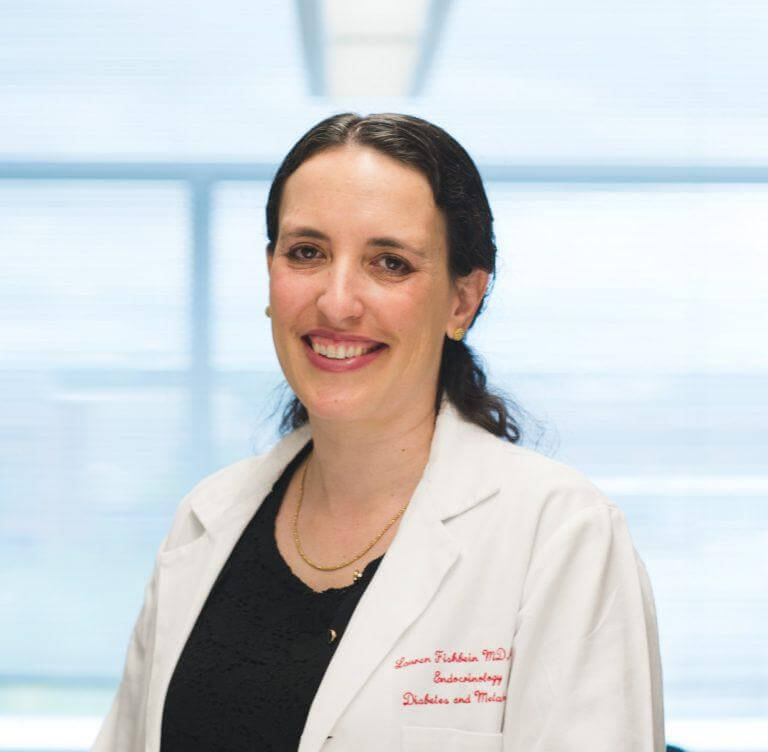
Lauren Fishbein, MD PhD MTR
Chair, Research Advisory Board & Member, Medical Advisory Board
Dr. Fishbein is currently an Associate Professor of Medicine at the University of Colorado School of Medicine in the Division of Endocrinology, Metabolism and Diabetes with a secondary appointment in the Department of Biomedical Informatics. Dr. Fishbein has a strong interest in personalized medicine including understanding the impact of germline predisposition genetics for endocrine tumor syndromes, as well as understanding neuroendocrine tumor development and metastatic disease. Her research program focuses on investigating the interplay between somatic and germline genetics in neuroendocrine tumors, with a focus on pheochromocytoma and paraganglioma. She has served as chair on several committees for national and international societies, including the Endocrine Society, the North American Neuroendocrine Tumor Society, and the American-Australian-Asian-Adrenal Alliance (A5) research consortium’s Pheo/Para Working Group. Her research has been funded by the American Cancer Society and the National Institutes of Health.

Karel Pacak, MD, PhD, DSc
Chair, Medical Advisory Board & Member, Board of Directors
Dr. Pacak is a board-certified endocrinologist and an internationally recognized expert in the diagnosis and treatment of neuroendocrine tumors, especially pheochromocytoma and paraganglioma. He graduated summa cum laude from Charles University, Prague, Czech Republic in 1984. In 1990, he began his postdoctoral fellowship at NINDS. In 1995, Dr. Pacak began his residency in internal medicine at the Washington Hospital Center under Dr. L. Wartofsky, followed by a fellowship in endocrinology, diabetes, and metabolism at NIH. In 1998, he established a new Program for Neuroendocrine Tumors focusing on pheochromocytoma and paraganglioma at NICHD. He received his Ph.D. in 1993 and his D.Sc. in 1998 in the field of neuroendocrinology from Charles University. In 2006, he was awarded a lifetime professorship in Internal Medicine at Charles University. Currently, Dr. Pacak serves as the Medical Director for the Center for Adrenal Endocrine Tumors at Akeso Hospital in Prague, Czech Republic.
Dr. Pacak established the International Symposia on Pheochromocytoma. He also helped co-found a new Asian Alliance for the Study of Neuroendocrine Tumors in 2010. He is a recipient of numerous awards including the Peter Heimann Memorial Award at Yale University, International Association of Endocrine Surgeons; NIH Director’s Mentor Award, Award for Cure from Pheo Para Alliance, NICHD Director’s Award of Merit, Pincus Taft Memorial Lecture the Highest Award from Endocrine Society of Australia, and Jessenius Gold Medal from Slovak Academy of Sciences. Dr. Pacak is the author of more than 305 scientific peer-reviewed articles, 98 book chapters, and 5 books.
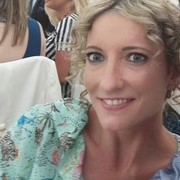
Ruth Casey, MB BCH BAO PhD
Member
Dr Ruth Casey is a Consultant Endocrinologist in Cambridge University Hospital NHS Foundation Trust and holds an academic position as a senior research associate in the Department of Medical Genetics, Cambridge University. Dr Casey leads neuroendocrine tumour (NET) and endocrine cancer services in Cambridge encompassing both clinical practice and independently funded research. She has a specialist research interest in NETs including SDH deficient tumours (phaeochromocytoma, paraganglioma and GIST) and the molecular mechanisms underpinning endocrine cancers. Dr Casey led the application for Centre of Excellence status for the management of phaeochromocytoma and paraganglioma on behalf of Cambridge University Hospital in 2021. Dr Casey acts as a medical advisor for AMEND and PAWS GIST.
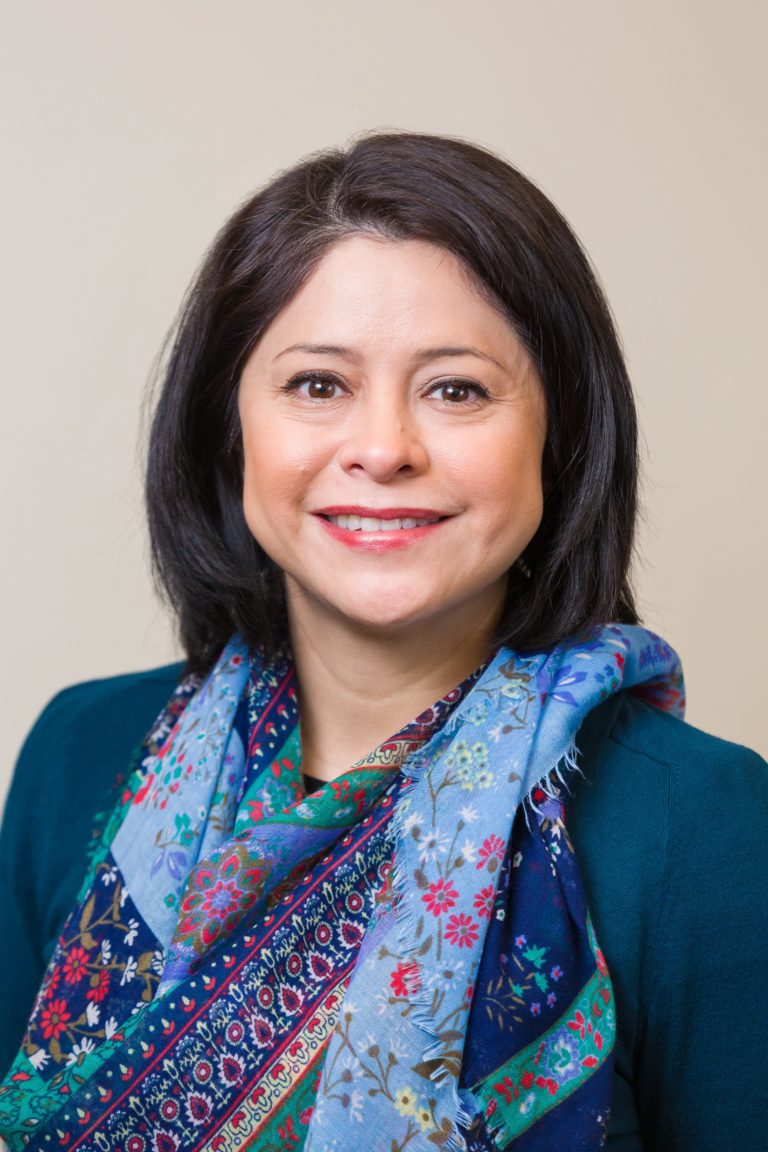
Jaydira Del Rivero, MD
Member, Medical Advisory Board
Dr. Del Rivero earned her medical degree from the University of Veracruz in Veracruz, Mexico and completed her internal medicine residency at Woodhull Medical and Mental Health Center/NYU-Langone Medical Center.
Dr. Del Rivero completed a fellowship in Endocrinology, Diabetes and Metabolism at The Inter-Institute Endocrinology Training Program (IETP) at the National Institute of Diabetes and Digestive and Kidney Diseases (NIDDK), The National Institute of Child Health and Human Development (NICHD), and The National Institute of Dental and Craniofacial Research (NIDCR) where she was part of a research team developing clinical trials for pheochromocytoma and paraganglioma. She then joined as Assistant Professor at the Montefiore Einstein Center for Cancer Care (MECCC) where she specialized in endocrine oncology involving thyroid cancer, parathyroid and adrenal tumors, and clinical research for gastroenteropancreatic neuroendocrine tumors.
She subsequently completed a second fellowship in medical oncology at the National Cancer Institute (NCI) with a research focus on endocrine malignancies. Dr. Del Rivero is board certified in Internal Medicine, Endocrinology, Diabetes and Metabolism and Medical Oncology.
Dr. Del Rivero is a Physician Scientist in the Developmental Therapeutics Branch. She is the Principal Investigator of the Natural History Study for Neuroendocrine Neoplasm and Adrenocortical Cancer to provide the basis of further development of therapeutic interventions, prevention/screening guidelines, endpoints for future clinical trials. She is also the national PI of an NCI’s National Clinical Trials Network (NCTN) with the Alliance for Clinical Trials in Oncology “A Prospective, Multi-Institutional Phase II Trial Evaluating Temozolomide Vs. Temozolomide and Olaparib For Advanced Pheochromocytoma And Paraganglioma”
Dr. Del Rivero’s current efforts is the development of novel treatment approaches and targeted therapies for endocrine malignancies such as advanced gastroenteropancreatic neuroendocrine tumors, adrenocortical cancer and pheochromocytoma/paraganglioma.
Joe Dillon, MD
Member
Dr. Dillon is a Professor of Medicine in the Division of Endocrinology at the University of Iowa Hospitals and Clinics, where he is the director of the PheoPara Alliance Center of Excellence and previously director of the European Neuroendocrine Tumor Society’s Center of Excellence. His clinical practice is focused on care of people with neuroendocrine tumors, including pheochromocytoma and paraganglioma. He has participated in clinical trials and publications related to diagnostic and therapeutic nuclear agents and drug therapies in this population.
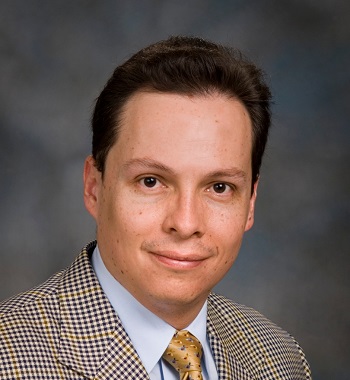
Camilo Jimenez, MD
Member, Medical Advisory Board
Dr. Jimenez is a Tenured Professor of Endocrine Neoplasia and Hormonal Disorders at the University of Texas MD Anderson Cancer Center. He is the principal investigator of six clinical trials for patients with metastatic pheochromocytomas and paragangliomas. His research led to the identification of high-specific activity MIBG as an effective medication for metastatic pheochromocytomas and paragangliomas; this medication became the first FDA-approved medication in the United States for this indication. Dr. Jimenez has performed extensive clinical research in the field of endocrine cancer with a particular interest in pheochromocytomas and paragangliomas. Dr. Jimenez was one of the first clinicians to describe the use of tyrosine kinase inhibitors in patients affected with sporadic and hereditary (Von Hippel-Lindau and Paraganglioma syndrome type 4) metastatic pheochromocytomas and sympathetic paragangliomas. His observations led to the development of clinical trials with tyrosine kinase inhibitors including the phase 2 clinical trial with Cabozantinib (NATALIE Trial) which reported that Cabozantinib is an effective treatment for the disease. This work was published in the Lancet Oncology in 2024 and was recognized with the award “the Manuscript of the Year” by the Division of Internal Medicine. Dr. Jimenez is the leading worldwide principal investigator of the phase 2 clinical trial with Belzutifan for patients with metastatic pheochromocytoma and paraganglioma. Belzutifan was approved by the FDA for the treatment of patients with metastatic and progressive pheochromocytomas and paragangliomas on May 14, 2024. This is the second FDA approved therapy for patients with these tumors and the first oral FDA-approved medication. Dr. Jimenez also characterized inherent complications related to excessive hormonal secretion and tumor burden distinctive of this disease. His seminal accomplishments include assessing the value of antiresortive agents and chemotherapy against bone metastases; demonstrating that systemic chemotherapy with cyclophosphamide, vincristine, and dacarbazine is associated with improved overall survival; describing the clinical predictors of aggressiveness and overall survival of these tumors, the value of surgery in patients with metastatic disease, and the managing of gastrointestinal and cardiovascular complications.
Dr. Jimenez has published 150 manuscripts in high-impact journals such as the Lancet Oncology, Nature Reviews in Endocrinology, Annals of Surgery, Clinical Nuclear Medicine, and the Journal of Nuclear Medicine and chapters for prestigious books, including Harrison’s Principles of Internal Medicine. He was a member of the editorial board for the Journal of Clinical Endocrinology and Metabolism. Dr. Jimenez presented at the Schimke Memorial Lecture Grand Rounds at the University of Kansas and has been invited to give lectures for Grand Rounds at several other institutions in the US, Canada, Australia, Europe, Japan, South America, and Africa. Dr. Jimenez has lectured in many national and international scientific meetings. He was the co-chair of the International Society for Pheochromocytoma and Paraganglioma Research PRESSOR. He was recognized by the PheoPara Alliance because of his contributions to the field with the 2015 Science Award. Dr. Jimenez was the Chair of the Diversity and Membership Committee of the North American Neuroendocrine Tumor Society NANETS. His very focused and successful career has positioned him as an example to be followed by the new generations of endocrinologists. Emblematic of this success, the Endocrine Society invited him, four years in succession, to give the honorary lecture titled “How I got here? A personal journey.”
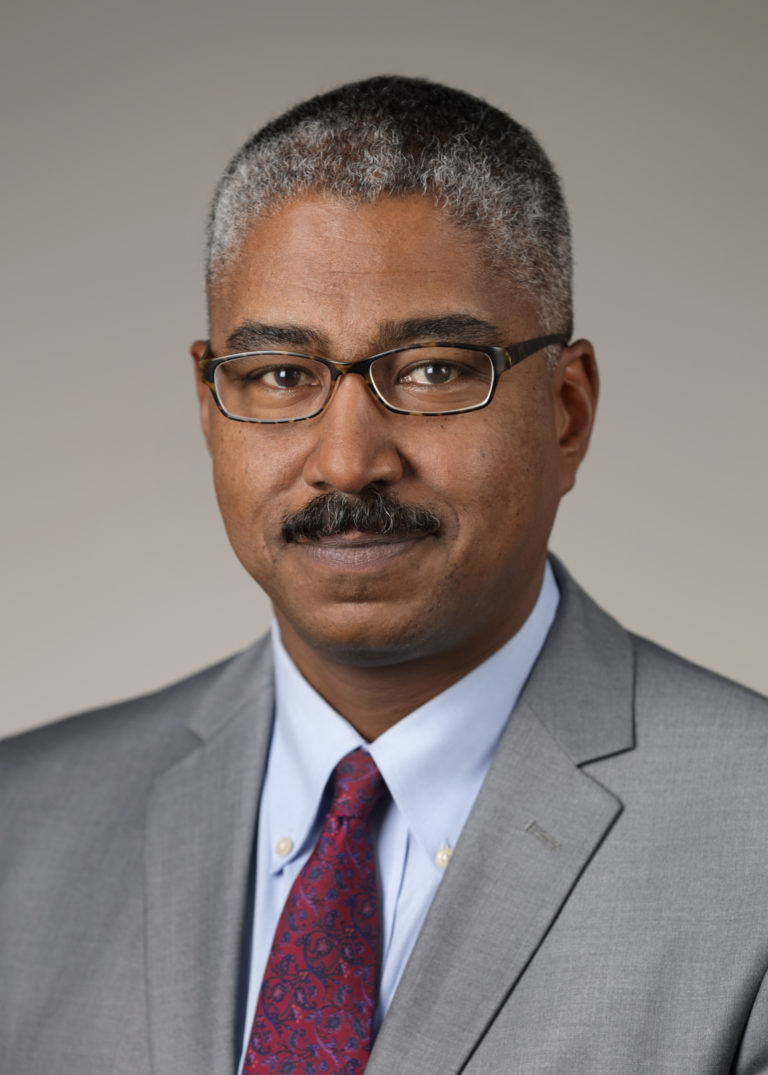
Electron Kebebew, MD, FACS
Member
Dr. Kebebew is Professor of Surgery, Chief of the Division of General Surgery & The Harry A. Oberhelman Jr. & Mark L. Welton Professor at Stanford University, School of Medicine. He received his bachelor’s degree from the University of California, Los Angeles in Chemical Engineering. He completed his medical training, surgical residency & NCI T32 fellowship in Cancer Biology at the University of California, San Francisco. He joined the surgical faculty at UCSF in 2002. In 2009, he was recruited to the National Cancer Institute where he established an integrated clinical & research program in Endocrine Oncology before being recruited to Stanford School of Medicine in 2018.
He is an internationally recognized expert in Endocrine Oncology & Surgery. He has performed more than three thousand operations on the adrenal, parathyroid & thyroid glands & for neuroendocrine tumors of the gastrointestinal tract & pancreas. Dr. Kebebew has published over 400 articles, chapters & textbooks & serves on the editorial board & as a reviewer for 54 biomedical journals.
His translational & clinical investigations have three main scientific goals: to develop effective therapies for fatal, rare & neglected endocrine cancers, to develop new methods, strategies & technologies for improving the diagnosis & treatment of endocrine neoplasms & the prognostication of endocrine cancers & to develop methods for precision treatment of endocrine tumors based on tumor genetics & advanced imaging methods.
Elizabeth Keenan, MBA, PMP, SHRM-CP
Member
Elizabeth Keenan, MBA, PMP, SHRM-CP – Elizabeth is an experienced leader who takes abstract ideas and undeveloped thoughts and refines them into tangible artifacts, plans, or processes to elevate business performance. She is known for creating value at the intersections between people, projects, and processes. Elizabeth is a strategic and critical thinker who uses data to create focus and to leverage business decision making and who thrives in a fast-paced and encouraging work environment that values the mission, the people, innovation, data, and openly embracing diversity. Elizbeth has spent many years working in Human Resources and Project Management for healthcare and insurance organizations across Maine and New England. Currently, Elizabeth is a Senior Human Resource Project Manager with Mass General Brigham Hospital. Elizabeth has an MBA from Husson University and a BS in Business Administration from Husson University. She holds certifications as a Project Management Professional (PMP), SHRM-Certified Professional (SHRM-CP), and the Six Sigma Lean Black Belt Professional (LBBP).
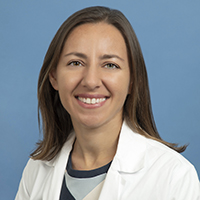
Masha Livhits, MD
Member
Dr. Masha Livhits is an Endocrine Surgeon and Assistant Professor of Surgery at UCLA. She is the UCLA Endocrine Surgery Fellowship Director. An exceptional achiever since childhood, she attended college at the age of 12 through the highly competitive Early Entrance Program at California State University, Los Angeles. She then received her medical degree at Washington University School of Medicine in St. Louis and was awarded the prestigious Sarnoff Foundation genetics research grant.
Dr. Livhits completed her general surgery training and endocrine surgery fellowship at UCLA. She is certified by the American Board of Surgery and is a member of the American College of Surgeons. Dr. Livhits has published widely in the area of improving surgical outcomes and quality of care. She is dedicated to combining knowledge learned through research with her experience as a surgeon to deliver the best care to her patients. Her clinical and research interests include parathyroid disease, benign and malignant thyroid tumors, adrenal masses, and familial endocrine disorders. She helped to pioneer the new technique of single incision retroperitoneoscopic adrenalectomy in North America. She has an ongoing clinical trial to study molecular testing for thyroid nodules.
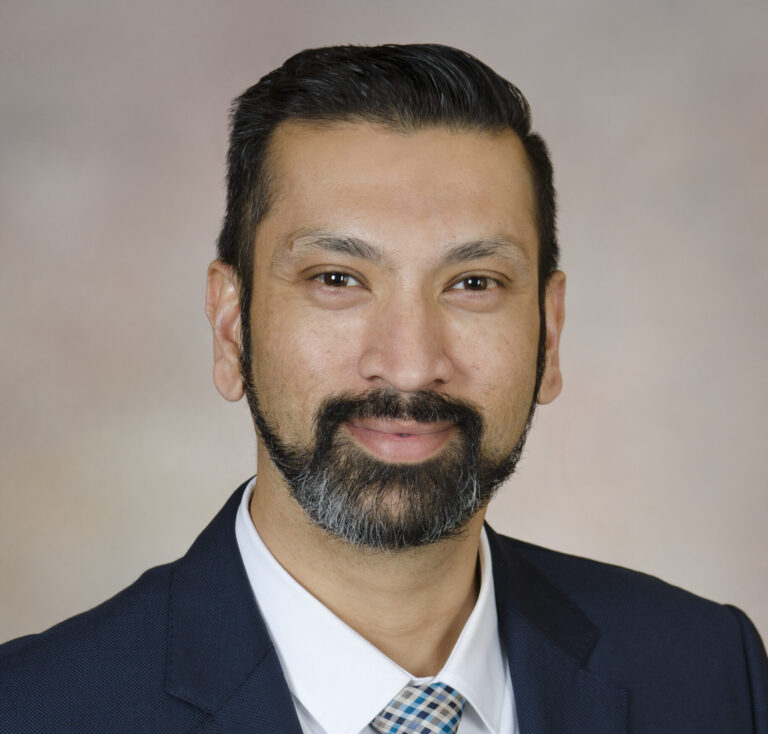
Erik Mittra, MD, PhD
Member
Dr. Mittra is a Professor of Diagnostic Radiology and Chief of Molecular Imaging and Therapy at Oregon Health & Science University (OHSU). Dr. Mittra completed residency and fellowship in Nuclear Medicine at Stanford University where he was faculty for many years before moving to OHSU in 2018.
Dr. Mittra practices all aspects of molecular imaging and therapy. This includes adult and pediatric general nuclear medicine imaging and PET imaging for oncology, cardiac, and neurologic applications. Radiopharmaceutical therapies are of particular interest and he is nationally recognized in this area. His research interests are primarily focused on the translation of novel theranostic agents to the clinical setting.
He is active with the Society of Nuclear Medicine and Molecular Imaging, the North American Neuroendocrine Tumor Society, the Healing NET Foundation, and is honored to serve on the medical advisory board for the Pheo Para Alliance.

Svenja Nölting, MD
Member
Professor Dr. Svenja Nölting is a board-certified endocrinologist, Assistant Professor for Endocrine Tumors, and joint Leader of the Neuroendocrine Tumor Board and the Endocrine and Neuroendocrine Tumor Center, ENETS Center of Excellence Zurich, at the Department of Endocrinology, Diabetology and Clinical Nutrition, University Hospital of Zurich, USZ, and the University of Zurich, UZH. After she finished her medicine studies in 2008 and her doctoral thesis in 2009 at the LMU Munich, she started her training as Medical Doctor (MD) at the Medical Department II of the University Hospital of the LMU Munich. In 2010 she received a DFG (Deutsche Forschungsgemeinschaft, German Research Foundation) research grant for investigating novel targeted drugs in malignant pheochromocytomas and paragangliomas, and held a post-doctoral position at Barts and the London School of Medicine (mentor Ashley Grossman), and at the NIH, Bethesda, Maryland, USA (mentor Karel Pacak) from 2010–2012. She then continued her training as MD at the Medical Departments II and IV of the University Hospital of the LMU Munich, becoming Research Group Leader with a special interest in personalized therapy of (Neuro)endocrine Tumors in 2012. In 2020 she was appointed Assistant Professor for Endocrine Tumors at the USZ and UZH. Prof. Nölting has become one of the most respected international experts in the field of pheochromocytoma and paraganglioma research and therapy. Her research has been funded amongst others by the DFG (Deutsche Forschungsgemeinschaft, German Research Foundation), Wilhelm Sander-Stiftung and Else Kröner-Fresenius-Stiftung. She is the author of more than 70 scientific peer-reviewed articles, mainly in the field of pheochromocytomas and paragangliomas. In 2022, she received the ENSAT Award for her pheochromocytoma and paraganglioma research, and the Rising Star Award of the European Journal of Endocrinology. She serves as member of the scientific committee of the International Symposium on Pheochromocytoma 2025.
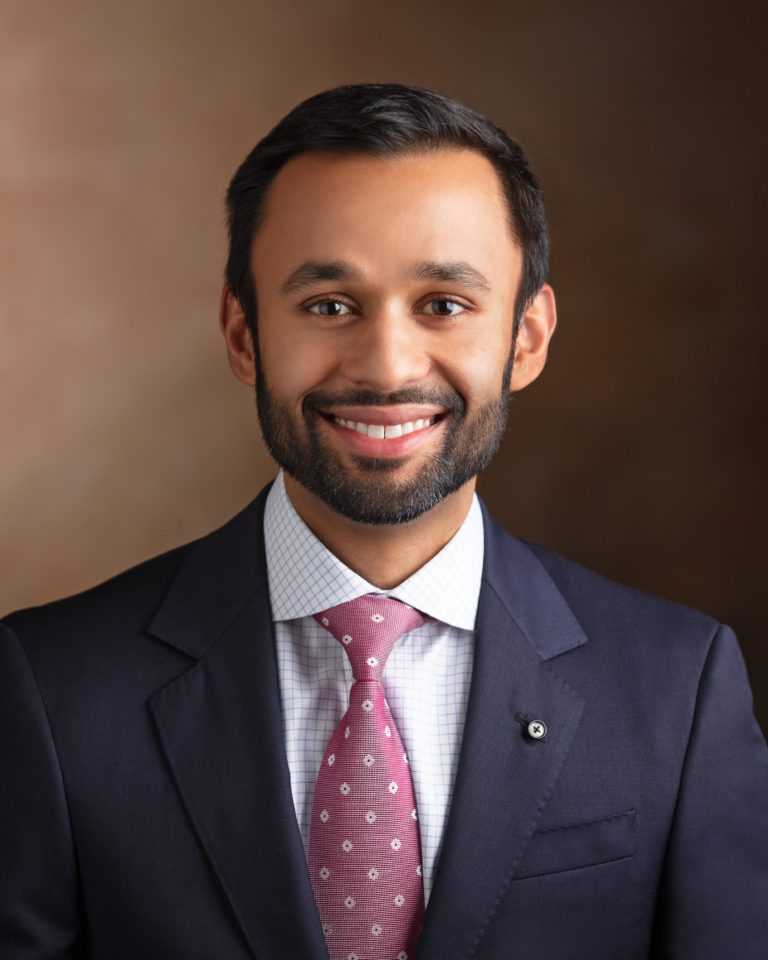
Neil Patel, MD
Member
Neil S. Patel, MD, is an Assistant Professor of Neurotology and Skull Base Surgery within the Division of Otolaryngology – Head and Neck Surgery at the University of Utah in Salt Lake City, Utah. Dr. Patel completed both his fellowship in otology/neurotology and skull base surgery and his residency training in otolaryngology – head and neck surgery at the Mayo Clinic in Rochester, Minnesota. One of his primary research interests is the management of head and neck paragangliomas, specifically glomus jugulare tumors. Several of his over 50 peer-reviewed publications are focused on outcomes following treatment of jugular paragangliomas. As a lateral skull base surgeon, he is actively involved in the multimodality treatment of skull base and neck paragangliomas as part of a multidisciplinary team at University of Utah, a Pheo Para Alliance Center of Excellence.
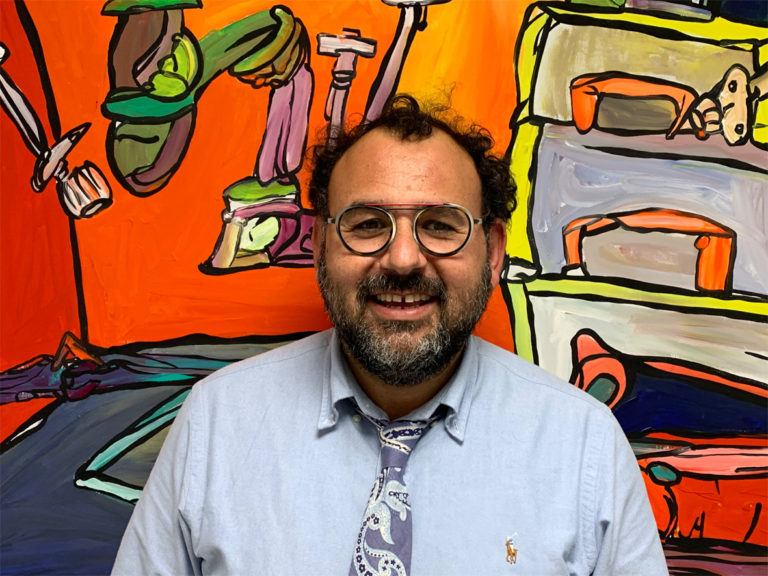
David Taïeb, MD, PhD
Member
David Taïeb (MD-PhD) is full professor of Nuclear Medicine at Aix Marseille university, France. He is member of the EANM Oncology & Theranostics Committee. He holds numerous research grants and is co-editor of 2 textbooks dedicated to Nuclear Endocrinology. He has over 240 peer-reviewed publications on PubMed. A major focus of his clinical research in collaboration with the NIH has been to improve disease characterization by molecular imaging of pheochromocytoma and paraganglioma (PPGL). In addition, he is actively involved in therapeutic nuclear medicine with a major focus on endocrine neoplasms. He is also affiliated to INSERM (French Institute of Health and Medical Research) with several on-going basic research projects on nanomedicine and nucleic acid therapeutics. More recently, he has coordinated the EANM Practice Guideline/SNMMI Procedure Standard 2019 for radionuclide imaging of PPGL. He is currently co-chair of the upcoming future clinical practice guidelines for patients harboring germline mutations in the SDHD and SDHB genes.

Anli Tong, MD
Member
Dr. Tong is a Professor of Department of Endocrinology, Peking Union Medical College Hospital (PUMCH), Chinese Academy of Medical Sciences & Peking Union Medical College, China. Her clinical practice is focused on patients with adrenal disorders, including pheochromocytoma and paraganglioma (PPGL). Her team had established the largest cohorts of metastatic PPGL in China, and completed several clinical trials for the treatment of metastatic PPGL patients, including temozolomide, anlotinib, etc. She also promoted the new functional imaging approach 18F-MFBG PET/CT into clinical practice in China.
Research Advisory Board

Linda Rose-Krasnor, MASc, PhD
Chair, Board of Directors, PPA
Linda Rose Krasnor is currently a Professor Emeritus at Brock University, which is located in southern Ontario, Canada. She is a developmental psychologist, with particular research interests in social development and youth engagement. In addition to her teaching and research responsibilities, Linda served as President of the Brock faculty union and was active in the University Senate, serving terms as Chair of the Senate’s Governance and the Planning, Priorities, and Budget Advisory committees. Since becoming involved in the Pheo Para Alliance, Linda has been part of the peer support initiative, helping to develop the peer support training module and facilitating the monthly peer support calls.
Although asymptomatic, in 2009 Linda was assessed for pheocromocytoma/paragangliomas following the diagnosis of multiple paraganglomia in three close family members. Linda’s testing indicated bilateral neck paragangliomas, which subsequently were determined to be glomus vagale tumors. One was been surgically removed in 2016, with accompanying vagal nerve damage resulting in a paralyzed vocal cord and Horner’s Syndrome. With further surgery and extended speech therapy, Linda’s voice has recovered and she is being monitored yearly for growth in the remaining tumor. Linda and her family have the SDHD mutation.
In her role as a Board member, Linda is looking forward to helping advance the important and much needed educational, support, and empowerment functions of PPA and to strengthen its critical role in promoting research into prevention, diagnosis, and treatment. She is specifically interested in increasing our understanding of the socio-emotional implications of living with pheo/para, especially for children and youth.
Linda received her B.A. in psychology from Boston University and her M.A.Sc. and Ph.D. in developmental psychology from the University of Waterloo. In addition to her work with PPA, Linda volunteers as a leader of adult and children’s bereavement groups for Hospice Niagara.

Lauren Fishbein, MD PhD MTR
Chair, Research Advisory Board & Member, Medical Advisory Board
Dr. Fishbein is currently an Associate Professor of Medicine at the University of Colorado School of Medicine in the Division of Endocrinology, Metabolism and Diabetes with a secondary appointment in the Department of Biomedical Informatics. Dr. Fishbein has a strong interest in personalized medicine including understanding the impact of germline predisposition genetics for endocrine tumor syndromes, as well as understanding neuroendocrine tumor development and metastatic disease. Her research program focuses on investigating the interplay between somatic and germline genetics in neuroendocrine tumors, with a focus on pheochromocytoma and paraganglioma. She has served as chair on several committees for national and international societies, including the Endocrine Society, the North American Neuroendocrine Tumor Society, and the American-Australian-Asian-Adrenal Alliance (A5) research consortium’s Pheo/Para Working Group. Her research has been funded by the American Cancer Society and the National Institutes of Health.
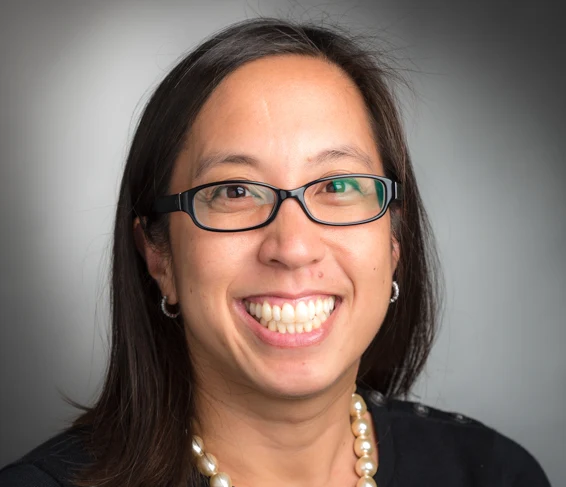
Kimberly Perez, MD
Member
Dr. Kimberly Perez, MD, is a member of the Dana-Farber Cancer Institute/Harvard Cancer Center Gastrointestinal Oncology and Cancer Genetics and Prevention disease centers. She is a Senior Physician in Medical Oncology at Dana-Farber Cancer Institute, an Associate Physician in Medical Oncology at Brigham and Women’s Hospital, co-Director of the DFCI Gastrointestinal Clinical Trials program, and an Assistant Professor of Medicine at Harvard Medical School.
She is a physician-scientist who provides patient care and conducts clinical research of novel therapies for patients diagnosed with gastrointestinal cancers and inherited cancer syndromes. Since she joined the faculty, she was designated a Hale Family Center for Pancreatic Cancer Research Clinical Investigator and has developed and led investigator-initiated bench-to-clinic multi-institutional clinical trials for patients with pancreatic adenocarcinoma. Within the Neuroendocrine and Carcinoid program, she has led multi-institutional clinical trials, translational efforts, and served and led national therapeutic guideline efforts.
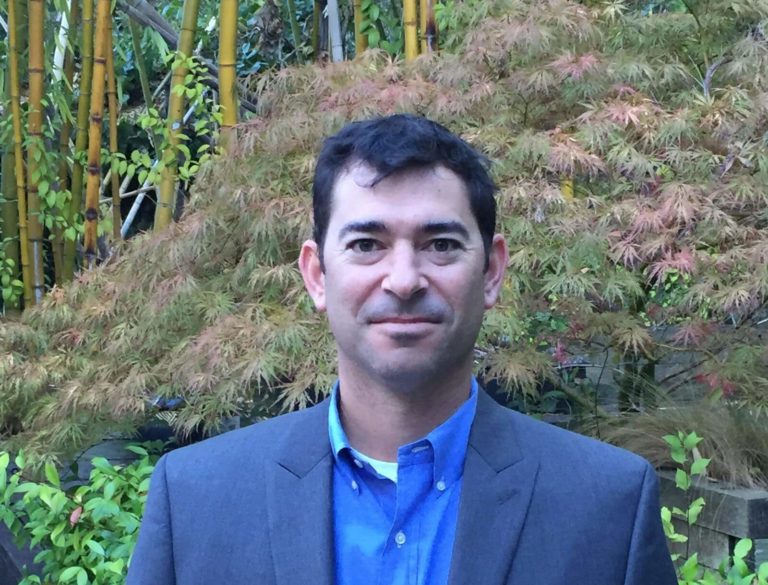
Justin Annes, MD PhD
Member
Justin Annes received his MD PHD degrees from New York University Medical School (2004) where he studied the regulation of Transforming Growth Factor-β (TGF-β) activity with Dr. Daniel Rifkin. He subsequently trained in Internal Medicine and Clinical Genetics at Brigham and Women’s Hospital (BWH) / Harvard Medical School (2004-2009). During this period, he worked with Dr. Douglas Melton at Harvard University on understanding the molecular pathways that govern islet β-cell growth. His laboratory interest in Neuroendocrine Cell Biology led him to develop Neuroendocrine Tumor (NET)-focused clinical programs at BWH and the Dana Farber Cancer Institute while a Harvard Medical School Instructor (2009-2012). In 2012, Dr. Annes moved to Stanford University (Assistant Professor) where his Laboratory explores the growth-control of islet β-cells and develops novel animal models of the hereditary Pheochromocytoma and Paraganglioma (hPPGL) Syndrome. The goals of this research are to understand the molecular mechanisms that control NET development, identify growth-associated cellular weaknesses that may be therapeutically leveraged and prove the benefit of these therapeutic targets in a pre-clinical mouse disease model. Accordingly, Dr. Annes’ laboratory has incorporated the power of medicinal chemistry to explore novel therapeutic approaches to hPPGL-related tumors. Clinically, Dr. Annes has run a hereditary NET-focused clinic at Stanford (Endocrinology) since 2012, which cares for pre-symptomatic and symptomatic NET-affected patients and families. He is Head of Stanford’s Pheochromocytoma and Paraganglioma Program within the Endocrine Oncology Cancer Program (2018).

Samantha Greenberg, PhD, MS, MPH, CGC
Member
Samantha Greenberg is the founding program director of the UT Southwestern Genetic Counseling Training Program. She received her Master of Science degree in genetic counseling and public health from the University of Michigan after teaching middle school science with Teach For America in Tulsa, Oklahoma. She recently completed her Ph.D. at the University of Utah. As a cancer genetic counselor, Greenberg has provided clinical care across a variety of indications and facilitated the development of multidisciplinary teams and genetics clinics for patients with prostate cancer, von Hippel-Lindau syndrome, and paraganglioma/

Shonna Snyder, PhD
Member
Shonna was diagnosed with a bladder paraganglioma in 2019 after many years of extreme symptoms in which doctors dismissed as such things as stress, fatigue, panic attacks or POTS. Given her research and health education background, she knew that these diagnoses were not accurate and so she continued to push for further testing. She visited multiple doctors who did not believe her when she suggested that she had a pheo/para in her bladder and so she struggled to get the CT that she requested. She finally had a doctor truly listen and order the CT scan she needed in July of 2019 after five trips to the ER in one week. Her surgery took place in November of 2019 at the NIH.
Patient Engagement Committee
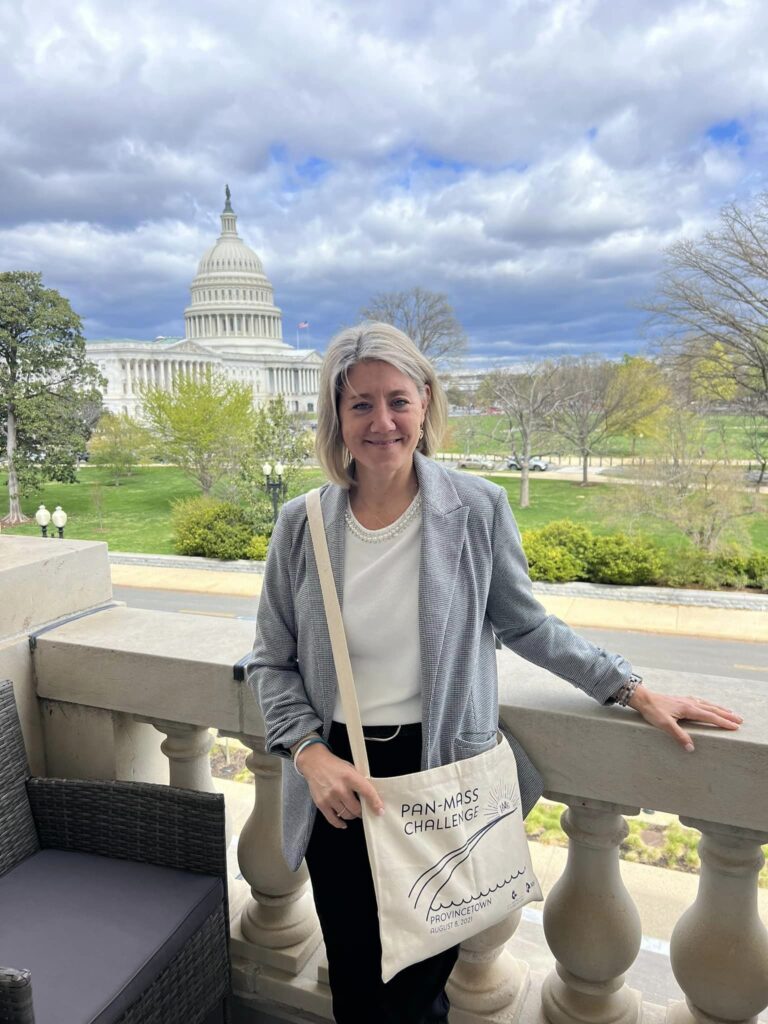
Jennefer Marchetti
Chair
Jennefer has been the Chair of the Patient Engagement Committee for the last year and is heavily involved in supporting the PPA community in a variety of ways. She is especially committed to providing peer support to those impacted by pheo para and provide support to the patient-volunteers that provide support to others! Aside from facilitating and co-facilitating Peer Support Meetings, Jennefer is a frequent attendee–bringing warmth, kindness, and a wonderful sense of humor to the meetings. Her positive outlook provides patients and caregivers much-needed encouragement during what can be a very challenging experience. She is dedicated and goes above and beyond.
Kelli Anderson
Member
*Info coming soon!

Genna Rod
Member
Genna works at the University of Ottawa and previously taught high school Psychology. Educated in Portugal, the United Kingdom, and Canada, she combines her academic background with her lived experience as a rare cancer patient. After many years of misdiagnosis, she underwent an adrenalectomy at The Ottawa Hospital in December 2023 to remove a pheochromocytoma.
Her journey did not end with surgery. Genna is now part of a longitudinal medical research study, contributing in the hope of advancing knowledge and finding answers for this rare cancer. She also co-leads patient support groups with both the Pheo Para Alliance and CNETS, helping others navigate the challenges of diagnosis and treatment.
Beyond her advocacy, Genna is a mother of two, wife to one, and human to an orange tabby named Charlie. Above all, she is committed to ensuring that no one facing a rare condition has to feel alone.
Click here to read Genna’s story that was featured on one of our Pheo Para Phridays!

Sandra Dillon
Member
Sandra is passionate about working through the stress, fear, and anxiety that comes along with a diagnosis of pheos and paras. Also, she feels that it’s important that we help our medical providers understand the emotional effects having a rare disease like pheo para has on patients and their family members, and therefore encourage our providers to take a whole-person approach to supporting their patients.
Sandra is the Pheo Para Patient Ambassador to our Center of Excellence, the University of Florida Health. Sandra’s deep experience with paraganglioma and her kind and compassionate nature make her the ideal choice for this position, and we’re excited to work with her and the UF Health team to bring expert care to our patients living in the Southeastern United States.
Click here to read Sandra’s story!
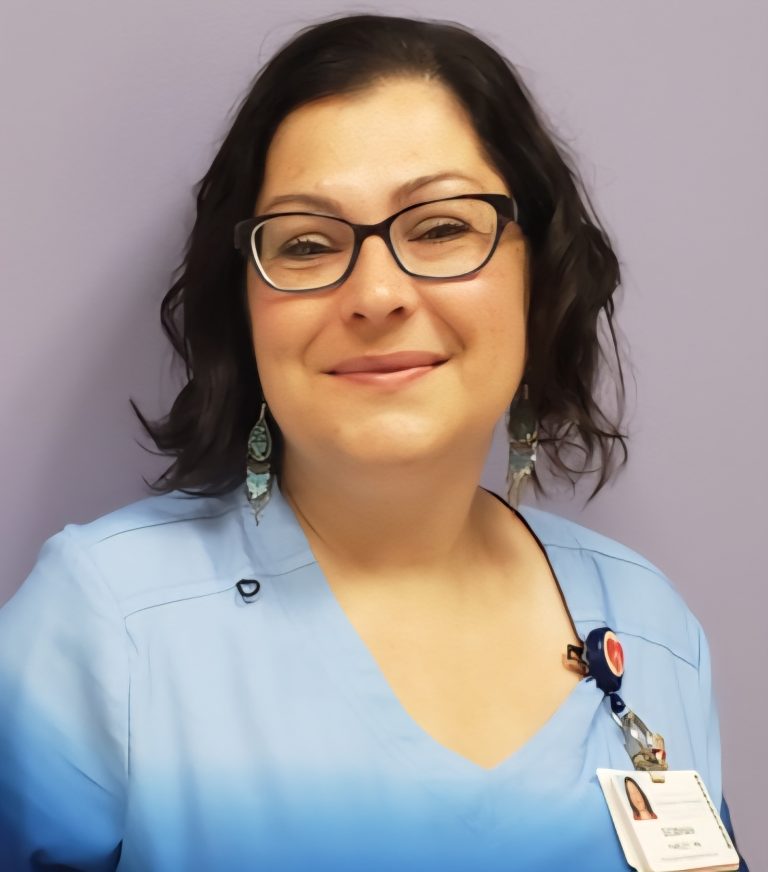
Siobhan Farley
Member
Siobhan Farley lives in Vermont with her husband and two children and enjoys being outside skiing and biking when she’s feeling good. Siobhan has been a Rheumatology nurse for 21 years and loves what she does. She was diagnosed with a 5cm pheochromocytoma back in 2018 after suffering from an NSTEMI heart attack and several ischemic strokes. It took months for her pheo to be found. Siobhan is involved with the Pheo Para Alliance to help support other patients. She enjoys helping spread awareness about our rare neuro endocrine tumors and being part of this wonderful community.
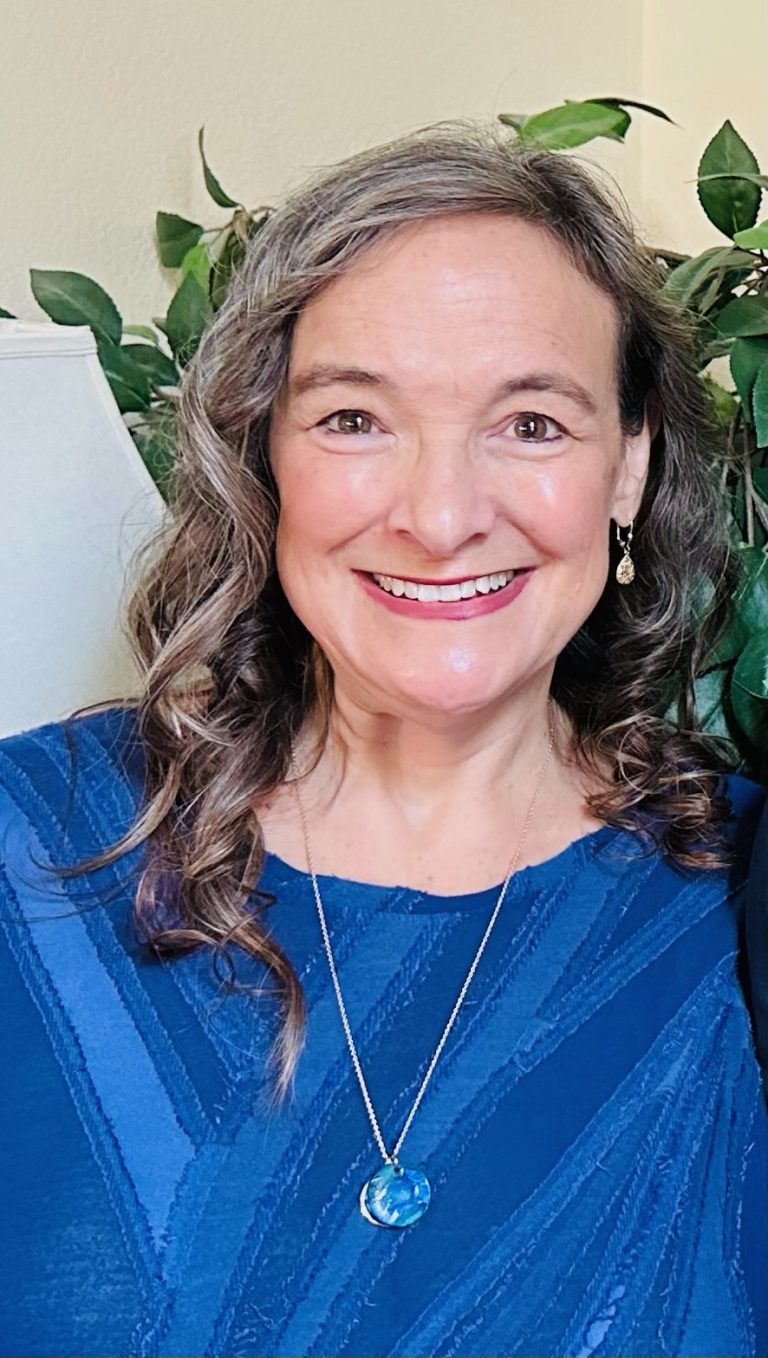
Karen Horton
Member
Karen was 21 when she had her first Carotid Body Tumor in 1989. In subsequent years her father, aunts and twin sister would be diagnosed with paragangliomas. Due to the familiar link, Karen and her twin sister Patricia were part of the University of Pittsburgh study on these tumors in the early 2000’s. Karen developed new symptoms in 2003. After several misdiagnosis’s, she was finally diagnosed with a vagal paraganglioma. Her father had permanently lost the ability to swallow after complications during his surgery to remove a Carotid Body Tumor. With this in mind, Karen did independent research to find very experienced surgeons that specialized in these surgeries. She found her team in Nashville and had a very successful outcome.
After her sister was diagnosed with more tumors, Karen wanted to learn more about treatment options and found the Pheo Para Alliance. Karen joined as a volunteer in 2021 and took over the New Patient Welcome Kits in 2022. She introduced the PPA Service Animal, our stuffed zebra Phearless. Karen remembers how overwhelming it was to find information and support for this rare condition and hopes that Phearless and the Welcome Kits provide some comfort to patients. Karen and her twin sister joined the NIH research program in 2023, where she discovered she too has more tumors. Her family has the SDHD gene mutation.
Karen was very honored to receive the PPA “Phriend of the Year” award in 2024.
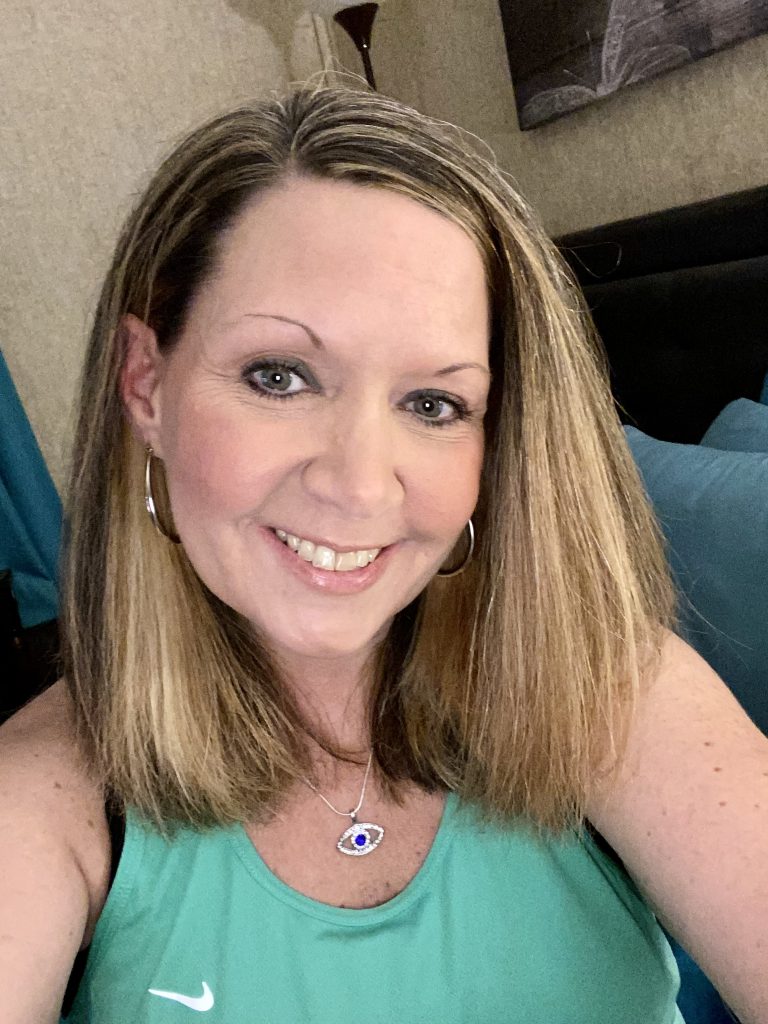
Jenifer Hunt
Member
Jenifer lives in Kentucky and her near 6.2 cm tumor was found September 14, 2022 when she was having a CT scan to locate kidney stones. She knew that she wanted to help others just like the PPA had helped her. Jenifer started attending the monthly peer support group meetings and has made wonderful, lifelong friends. Then, she signed up to become a volunteer. During that time, Jenifer started making Awareness Ribbons with zebra print ribbon. Now, Jenifer’s ribbons as well as her handmade notecards are a key feature of our Newly Diagnosed Patient Care Kits!
Courtney Kelly
Member
Courtney was diagnosed with a Pheochromocytoma in 2019 after months of seeing doctors for debilitating headaches, sweating, weight and hair loss. Being told she had “anxiety”, “white coat syndrome” and “menopause” she knew in her gut something was wrong.
After a yoga class with girlfriends, her left arm and left side of her face went numb and she ended up in the ER with blood pressure of 210/110. Thankfully her ER doctor tested her for a Pheo.
Courtney has found inspiration in speaking with medical students through Global Genes Allies and Rare Diseases . She’s also committed to helping newly diagnosed patients embrace their journeys of diagnosis, surgery and recovery through the Pheo Para Alliance.

Lacey Koelling
Secretary
My name is Lacey Koelling and my journey with PPA began in 2018 when I was diagnosed with bilateral carotid body tumors. At the time, I was introduced to the Paratroopers by my genetic counselor. From 2018-2023, I believed my lifetime of monitoring my paras was all this diagnosis would bring me. In 2023 when I received the news I was metastatic, the PPA became a refugee of information and support for me. Over the past year and a half, I have increased my involvement with other patients and researched ways to contribute to the education and research of pheo para through the PPA. This has led me to seek a greater, more involved role in supporting the community which led me to become a member of the board. I am interested in being an advocate for patients and research for treatment options.

Bessie Lewis
Member
Bessie Yang Lewis’ pheo para journey began when her husband Scott was diagnosed with metastatic paraganglioma in March 2021. She was his caregiver over the next 14 months as he underwent numerous treatments including orthopedic surgeries, radiation, chemotherapy, and nuclear medicine. Scott passed away in May 2022 at the age of 45. Based on her experiences, Bessie has a strong interest in advocating for patients and caregivers fighting rare diseases. She writes about her grief journey at https://scottandbessie.blogspot.com/.
Bessie holds a Master’s degree in Computer Science and a Bachelor’s degree in Computer Engineering, both from the Georgia Institute of Technology. She is interested in how artificial intelligence (AI) can be used to improve diagnostics and treatments for rare diseases.

Jennifer Manzo
Member
Jennifer is from Long Island, New York. She has been volunteering with the Pheo Para Alliance since January of 2021, mostly as a Peer Support Meeting facilitator and member of PPA’s Patient Engagement Committee. Jennifer was previously the Chair of the Patient Engagement Committee.
She is a pheo patient who was diagnosed with bilateral pheochromocytomas in February 2020 after nearly a decade of symptoms. In September 2020, Jennifer had surgery to remove both adrenals as well as a pancreatic neuroendocrine tumor. As a result of her bilateral adrenalectomy, she now lives with adrenal insufficiency. Genetic testing has revealed that she carries a MAX mutation, which requires regular follow up to check for recurrence. In addition to Jennifer’s pheo diagnosis, she also has a history of neuroblastoma as an infant.
Despite the challenges that have come along with her diagnosis, Jennifer is incredibly grateful for what she feels is a second chance at life. Volunteering with the Pheo Para Alliance has granted her the opportunity to give back while connecting with others affected by pheo and para. Jennifer loves connecting with patients during our peer support meetings and welcomes messages from anyone who wishes to connect one-on-one as well!

Chad Riding
Member
Chad is a transportation planner and part-time teacher based in Sacramento, California, not too far from his hometown of Fresno. He was diagnosed with a pheochromocytoma on his left adrenal gland in June 2021 after a hypertensive crisis while recovering from an outpatient procedure in April 2021. The pheochromocytoma was removed on August 31, 2021, and his regular blood work and scans have been normal since.
In his spare time, Chad likes to spend time with friends and family, learn foreign languages, read, travel, and hit the gym. You might remember Chad from the “Back to the Phuture” presentation during Awareness Week last year.

Paul Stoughton
Member
Paul is a Sound Designer working in video game development in the Seattle area. He was born in San Diego, California and grew up enjoying the beach and playing music in bands with his friends. After high school, he left San Diego to attend a digital arts college in the SF Bay Area, launching his career in interactive audio design. He loves music, recording sounds, long walks with his 1 year old golden retriever named Ramen and spending time with his wife Nikki.
He was first diagnosed with Paraganglioma at age 16, resulting in a long abdominal surgery to remove two tumors. It wasn’t until 14 years later that the disease returned, sending him through another round of surgeries to remove recurrent and metastatic disease. He’s currently eight years past this milestone and grateful for every tumor free year since. His priority now is enjoying a balanced life, enjoying the moment, and helping others navigate this disease.
Staff

JoBeth McCarthy, DHSc, MPH, CPH
Executive Director, PPA
JoBeth McCarthy, DHSc, MPH, CPH, joined Pheo Para Alliance in November 2025. She brings more than 20 years of leadership in public health, healthcare, research administration, and nonprofit governance. JoBeth has led initiatives at the federal, state, and local levels. Throughout her career, JoBeth has built and led programs from design through evaluation. Her experience includes fundraising, grants management, financial oversight, and strategic partnership development. Moreover, she has worked closely with boards of directors, advocated for patients and families, and provided strategic consulting to organizations committed to equity and improved outcomes.
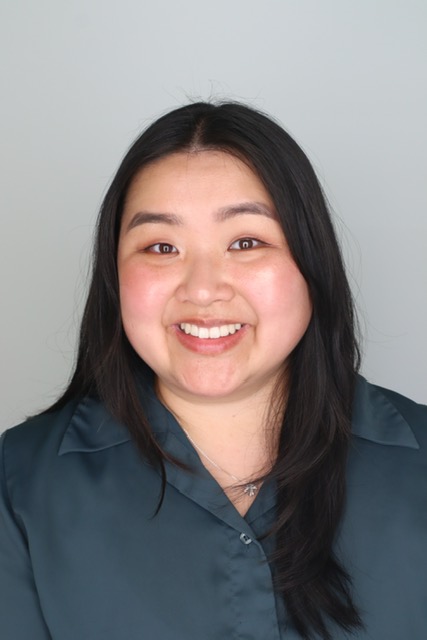
Cindy Chen
Program Coordinator
Cindy Chen is passionate about nonprofit and community-focused work and is excited to support and empower the pheochromocytoma/paraganglioma community. She received her Bachelor of Science in Business Psychology from UC San Diego and brings a background in community engagement and event management.
In her free time, Cindy enjoys creative writing, traveling, and crocheting. She lives in the San Francisco Bay Area.
